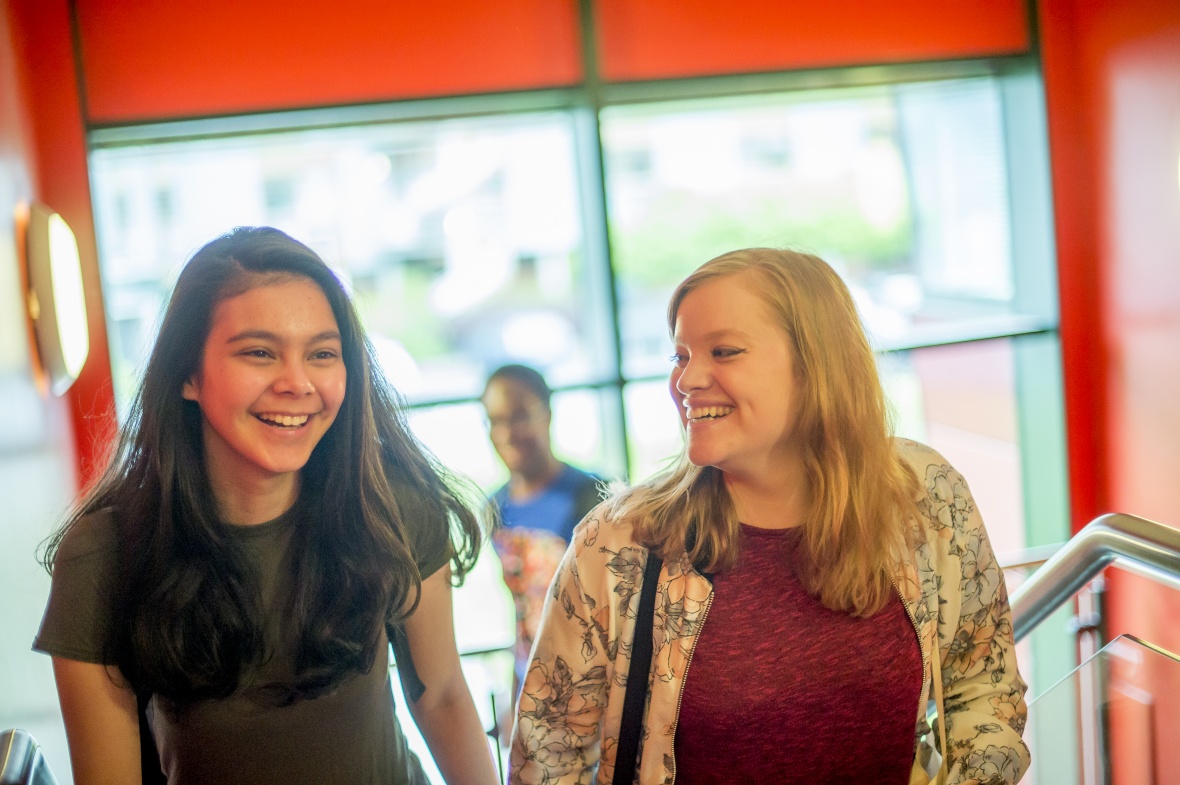Widening participation
Student journeys
Go Abroad: Who, Where, When, Why, How?
With the Turing Scheme coming in this year, new opportunities for students from all backgrounds to have an international adventure are emerging.

During my year abroad, I met people from a huge variety of backgrounds, and came away with friends from six different continents. The one constant among these students from Germany, Panama, the USA, Mongolia, Sudan, and New Zealand was that everyone was there for an international experience, and therefore had to speak English. We are extremely privileged that so many people speak our language, but we are strangely absent from many of these international experiences. Country by country, we receive far more students than we send; in the UK only 7.6% of non-language students from more advantaged backgrounds are mobile, and with students from less advantaged backgrounds, that number drops to 4.6%.1 This is curious, since the benefits of a placement abroad are many, to name a few:
> Employability – An international placement provides the resilience, cultural awareness, and communication skills that are so sought after by employers. This is doubly so if the student chooses a work placement, for example teaching English through the British Council
> Language – Studying in a country with a different language isn’t just for languages students; many modules are taught in English and total immersion is the best way to pick up this useful skill
> Broadening academic horizons – For many short-term placements (one or two semesters) it doesn’t matter what students study while abroad, so students have their pick of modules from across the host university.
> Socialising and adventure – If students want to spend their weekends traveling with a diverse group of people from all over the world while spending their weekdays exploring the local area and gaining university credits, this is their chance.
Spending a year or just one semester abroad is a popular way of jumping into life in another country and living la dolce vita, la vie en rose, the sweet life. While the UK will no longer be participating in the Erasmus+ scheme, students will be able to apply this September for the new Turing Scheme, in which the government has pledged to maintain parity with Erasmus in terms of funding. The exact grant will be based on the cost of living in the host country, but the support will be roughly:
> For four to eight week placements, non-repayable grants of £130 per week, or £155 for students from disadvantaged backgrounds
> For over eight weeks, non-repayable grants of £360 per month, or £470 for students from disadvantaged backgrounds
> Students from disadvantaged backgrounds can receive funding for travel expenses based on the distance travelled, plus visa, passport, insurance, and other necessary expenditures
> SEND students can receive up to 100% funding
> Students not from disadvantaged backgrounds may still be eligible for some travel funds.
All this is on top of their standard financial support, i.e. the maintenance loan and any bursaries – find the exact figures here – and students will have access to the support systems back in their UK University, as well as their host institution. Turing will also reach beyond Europe, will offer study and work placements to registered students and those who graduated in the previous twelve months, and there are no nationality restrictions. Note, if a student lives in Northern Ireland and has a British passport, they are still eligible to take part in Erasmus+ through Ireland’s participation.
For those looking for a longer-term adventure, spending their whole degree abroad is an interesting option. Many European countries are desirable due to their very low or sometimes non-existent fees, and some acclaimed universities in countries like The Netherlands, Belgium and Sweden offer courses taught entirely in English. The drawback to the astoundingly low tuition fees is that students may not have access to student finance and maintenance loans and, since the UK’s withdrawal from the EU, health insurance is another cost to be factored in. It is also important to check what support is available for students with certain needs. All is not lost however, as there are scholarships to support international study. As a compromise, students may consider the University of London Institute in Paris. It is an offshoot of a London university, with the same financial arrangements as any UK institution, but it is in Paris, with a small number of courses on the topics of culture, politics, law and French.
For the ambitious, North America boasts the top four universities in the world, according to the 2021 QS rankings.2 An obvious drawback is the eye watering cost of some courses in the US, and that’s before insurance and flights. Again though, there are scholarships for these and many other countries (think Asia and Australasia) which could waive up to 100% of the fees. These are very competitive, but well worth a shot. Have a look on the institution’s website to see what might be an option.
Some universities even offer summer schools for those who want to focus on their course in the UK, but still gain that invaluable experience. These will be a few weeks long and could be anywhere from Spain to South Korea, they could be general or specific to the course, and they often have funding available. Many courses even integrate a funded few weeks or a field trip abroad into the course - search for the subject area “with international study” and you might be surprised.
Opportunities to study and work abroad exist and are feasible, and the incoming Turing scheme is committed to widening access and ensuring that students from disadvantaged backgrounds are not limited by circumstance. Beyond this, universities work hard at an individual level to support their students at every step, right down to taking phone calls when a student is homesick. It is an experience like no other, which leaves students with confidence, new skills, and friends from every corner of the world.
Your students can learn more about the experiences of others by searching for “year abroad blogs” to find what might suit them.
Notes:
1. Turing Scheme (2021) Widening Access, Available at https://www.turing-scheme.org.uk/about/widening-access/
2. QS Top Universities (2021) QS World University Rankings, Available at https://www.topuniversities.com/university-rankings/world-university-rankings/2021
Unlock the full features
of Advancing Access
Create an account
To comment on our blog posts you need to either sign in or register an account. A free Advancing Access account will also enable you to:
>Download our full collection of CPD resources
>Take part in our online Virtual Conferences
>Keep up to date with the latest developments with our occasional emails (opt out available)








Comments